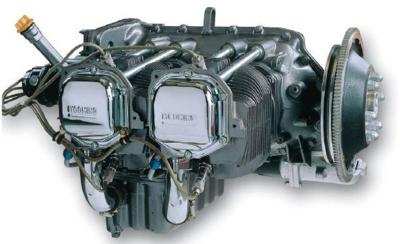Details Emerge To Make the Verdict Seem Even More Questionable Than Before
News/Analysis/Commentary By James R. Campbell, ANN CEO/Editor-In-Chief
In a statement released to ANN, Lycoming has signaled that it is likely to appeal the massive $26 million verdict reported previously.

The Cessna 172 involved, an airframe with nearly ten thousand hours and several hundred hours on the engine in excess of TBO, showed no evidence that the O-320 failed prior to impact. The NTSB found that the ATP-rated pilot appeared to have been at fault in its Probable Cause report, blaming, "The pilot's improper decision to continue VFR flight into instrument meteorological weather conditions. Contributing to the accident were low ceilings, reduced visibility, and mountainous terrain."
Interestingly; ANN has learned that the primary reason that Lycoming appears to be on the hook for all this is a major spat with the Judge over discovery requests that they either could not or would not comply with. We also understand that the Judge that ruled against them in the Discovery phase of this litigation is not the same Judge that presided over the trial. As a result, though, of Lycoming's inability and/or failure to meet the court's demands for a number of documents involving the carburetor, the Judge made rulings that pretty much dumped all fault for this CFIT accident in Lycoming's lap --even though the engine appears to have been running right up to the second that the Skyhawk smacked the mountain.
Justice?

OK... if a Judge has a problem with some part of a legal altercation, we expect there to be serious sanctions, fines, what have you... but throwing the blame for the whole case on Lycoming flies (literally) in the face of common sense, physical evidence and the findings of the most learned accident investigation organization in all the world--The NTSB. Last we checked, Justice was supposed to be about truth and facts and known/provable information... not about an activist Judge trying to smack down a big company that did not or could not comply with the court's orders.
ANN is continuing to research the matter and has engaged in a number of conversations with parties on both sides of this issue. We expect to update this story, again, shortly.
In the meantime, Lycoming is not going away quietly -- nor can they -- simply because after getting hit by an equally questionable 2010 verdict in a 1999 Cherokee Six accident for $89 Million (again, after the NTSB found NO powerplant related causal factors) and this, there may be no way for this near-legendary aviation powerplant manufacturer to survive -- at which point, the GA world has yet another very serious problem on its hands. And, possibly, it may be a fatal one for an all-American industry that simply can't take any more hits
Lycoming released a statement to ANN a short while ago that states, succinctly, their heartburn over this state of affairs...

"Needless to say, Lycoming Engines division of Avco Corporation is obviously disappointed about this verdict. First, the engine was manufactured in 1978 and had not been handled by Lycoming since that time. Second, Lycoming did not design, manufacture or sell the aftermarket carburetor installed in the airplane at the time of the accident. Third, the National Transportation Safety Board did not find anything wrong with the Lycoming engine and determined that the probable cause of this accident was the pilot's improper decision to continue VFR flight into instrument meteorological weather conditions. Contributing to the accident were low ceilings, reduced visibility, and mountainous terrain. Lycoming is exploring all legal avenues and presently expects to appeal the jury's award."
More info to come...
 ANN's Daily Aero-Term (05.07.25): Terminal Radar Service Area
ANN's Daily Aero-Term (05.07.25): Terminal Radar Service Area ANN's Daily Aero-Linx (05.07.25)
ANN's Daily Aero-Linx (05.07.25) Classic Aero-TV: Anousheh Ansari -- The Woman Behind The Prize
Classic Aero-TV: Anousheh Ansari -- The Woman Behind The Prize NTSB Prelim: Bell 206B
NTSB Prelim: Bell 206B Airborne-NextGen 05.06.25: AF Uncrewed Fighters, Drones v Planes, Joby Crew Test
Airborne-NextGen 05.06.25: AF Uncrewed Fighters, Drones v Planes, Joby Crew Test





